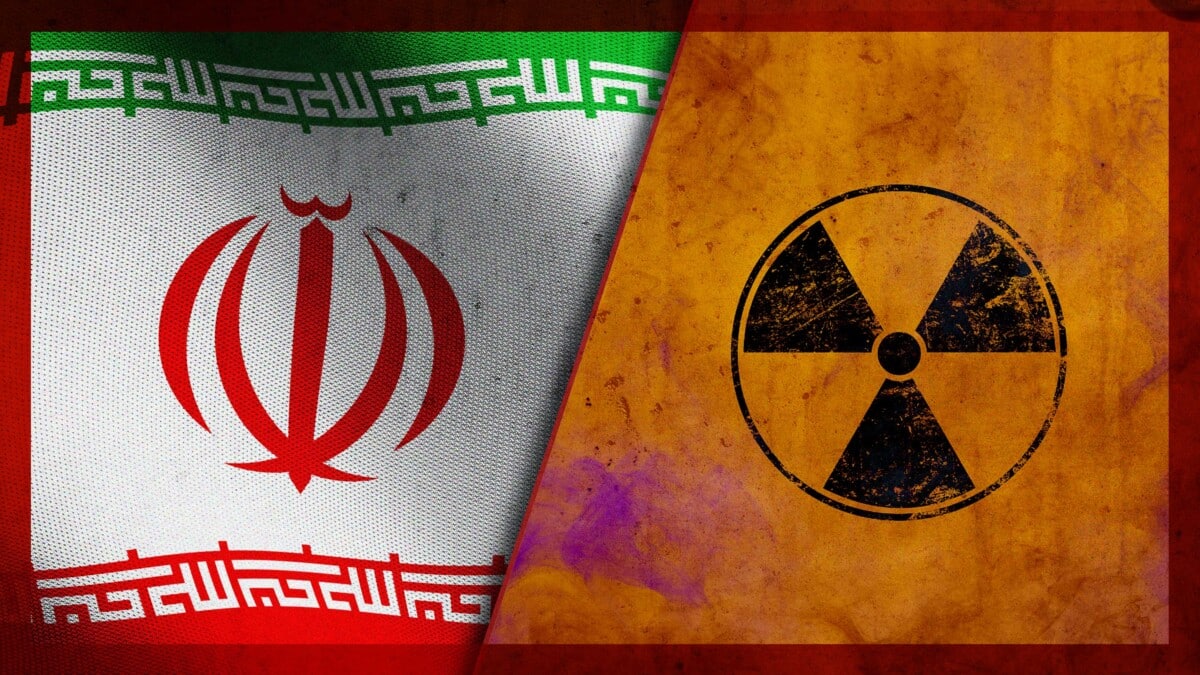Exclusive Interview
A decade after the signing of the Joint Comprehensive Plan of Action (JCPOA) concerning Iran’s nuclear program, a key question remains: did the JCPOA serve as a lasting foundation for the nuclear non-proliferation regime, or was it merely a temporary diplomatic maneuver, ultimately overwhelmed by geopolitical realities?
PIR Center conducted an interview with Andrey Baklitsky, Senior Research Fellow at the WMD Program of the United Nations Institute for Disarmament Research (UNIDIR), Member of the PIR Center Expert Council and Leonid Tsukanov, PhD in Political Science, PIR Center consultant.
The interview was conducted by Yuri Shakhov – Editor of the “Information and Digital Communications” section at the PIR Center.
Yuri Shakhov: What is the principal strategic legacy of the JCPOA after ten years? In your view, did it change the paradigm of nuclear non-proliferation, or was it merely a temporary diplomatic measure?
Leonid Tsukanov: The JCPOA played a significant role in the history of nuclear non-proliferation. It became an example of a well-crafted though not particularly durable agreement. More importantly, it reflected the spirit of its time, aligning with the interests of all participating parties. It symbolized a rare moment of unity among opposing camps and factions. It’s worth recalling that, by the time of the agreement’s signing in July 2015, Russia was already in economic confrontation with the U.S. and EU, while intra-European tensions persisted over the idea of a joint European army. Nonetheless, diplomats from these countries effectively cooperated, bringing the deal to completion, underscoring the primacy of global regulatory mechanisms over parochial concerns. Today, such unity is absent: the U.S., the “E3,” and the Russia–China tandem are each pursuing separate tracks, guided by their own visions of a future deal. Divisions over numerous international conflicts have further complicated consensus-building. As a result, the spirit of the second potential agreement is different: no longer defined by a commitment to global governance, but by a pursuit of advantageous status quos.
Andrey Baklitsky: The JCPOA was developed in response to a specific and protracted situation that had caused concern for over two decades. Its conclusion marked the result of a complex diplomatic process, widely seen at least until 2018 as a major achievement. This experience inevitably influenced the international community’s approach to non-proliferation. However, it was consistently emphasized during negotiations that the JCPOA was not to serve as a precedent or a new standard for future agreements.
Yuri Shakhov: What has the JCPOA revealed about the limits and possibilities of diplomacy in the face of asymmetric power and interests? What lessons have the key parties – Iran, the EU, Russia, China, and the U.S. learned about trust, diplomacy, and sanctions?
Leonid Tsukanov: To some extent, I have already addressed this. Each party interprets the JCPOA’s legacy differently. For the U.S., the key lesson is twofold: first, that its global standing allows it to exit inconvenient agreements without immediate consequences; second, that even modest efforts to constrain Iran within the deal ultimately led to Tehran’s empowerment and reduced external oversight of its nuclear activities. Iran appears to have lost all trust in Washington’s regulatory approach, especially following the unilateral U.S. withdrawal in 2017, its disregard for its own ultimatum timelines, and its attacks on Iranian nuclear facilities prior to the ultimatum’s expiry. Iran continues to publicly distance itself from Washington but leaves a “window for negotiation” open, likely in hopes of support from the remaining guarantors. As for Russia, China, and the E3, they are gradually realizing that clinging to the JCPOA’s legacy is increasingly untenable. The changing global order demands a new agreement – one that incorporates contemporary challenges and a revised system of guarantees. Still, all the original guarantors strive to preserve the ideological foundation of the initial deal.
Andrey Baklitsky: The JCPOA was the last major negotiation effort in the nuclear domain – politically and technically complex, with numerous stakeholders. Like any compromise, it was not ideal, but it was workable and forward-looking. It’s difficult to draw precise lessons from the U.S. withdrawal or the subsequent collapse of the deal. U.S. and Israeli strikes on Iran’s nuclear infrastructure have demonstrated what the alternatives to diplomacy may look like–and few would find them satisfactory. The JCPOA experience shows that even under the most difficult circumstances, solutions can be found when there is political will and commitment–diplomatic, economic, and institutional. Yet a comparable mobilization today seems unlikely. Still, this story is not yet over; it is too early to draw final conclusions.
Yuri Shakhov: Did the JCPOA exemplify the resilience of international agreements, or did it instead expose their vulnerabilities?
Leonid Tsukanov: Both. The JCPOA marked the culmination of years of diplomatic effort by a broad coalition (including the P5) and helped remove the Iranian nuclear issue from the “toxic agenda.” At the same time, its design did not fully account for worst-case scenarios–such as a guarantor deliberately undermining the deal for short-term gains. The lack of a “backup mechanism” prevented the remaining parties from restoring the agreement or reaching a successor deal. In 2015, few anticipated that political populism could so deeply damage the global security architecture–in the Middle East and beyond.
Andrey Baklitsky: The JCPOA demonstrated that multilateral agreements are inherently more robust than bilateral ones, which can be terminated unilaterally. Yet it also showed that when a key actor actively opposes the deal, even broad international consensus can only delay, not prevent a collapse.
Yuri Shakhov: Who bears the greatest responsibility for the JCPOA’s breakdown? What practical steps could be taken today to move beyond the current deadlock?
Leonid Tsukanov: The primary responsibility lies with the United States, which unilaterally withdrew from the agreement in 2017. President Trump had hoped to rapidly negotiate a more favorable successor deal one that would also constrain Iran’s space program, but talks stalled. Under the Biden administration, negotiations resumed slowly and only gained traction late in his term. Republicans later resumed indirect dialogue through the “Oman Initiative.” However, the events of June significantly eroded Tehran’s trust in both the talks and Washington. A new agreement with clearer guarantees, including a prohibition on unilateral withdrawal, remains the most logical way forward. Russia, China, and the E3 continue efforts to shape such a framework. Nevertheless, public negotiations cannot resume until regional tensions subside. Without stabilization, Iran is unlikely to engage rightfully citing national security concerns.
Andrey Baklitsky: Much now hinges on Iran’s strategy. The previous approach developing a peaceful nuclear program under maximum transparency as a deterrent has proven ineffective. Iranian leadership is likely to revise this strategy, though in what direction remains uncertain. Washington, meanwhile, appears eager to avoid escalation and continues to signal willingness for dialogue. Contacts persist, but whether they will yield results is unclear.
Yuri Shakhov: Amid today’s geopolitical turbulence, is an agreement analogous to the JCPOA conceivable not only regarding Iran but also in other sensitive areas, such as North Korea or the broader Middle East?
Leonid Tsukanov: It is inappropriate to speak of JCPOA “replicas” for other regions. Each challenge requires a bespoke approach that accounts for its unique variables. Nevertheless, the experience and outcomes of the JCPOA are certainly considered in the preparation of new initiatives aimed at de-escalation and trust-building in the nuclear domain. Still, we should not expect the JCPOA model to be directly transplanted elsewhere.
Andrey Baklitsky: If key players set a realistic objective and are willing to engage in serious negotiations, nothing is impossible. However, the current absence of both pragmatic goal-setting and diplomatic commitment in global capitals is precisely what led us into this period of “geopolitical turbulence.” Something fundamental must change.
Keywords: Iran, Nuclear Non-Proliferation, International Security, IAEA, NPT
NPT
E16/SHAH – 25/07/14




